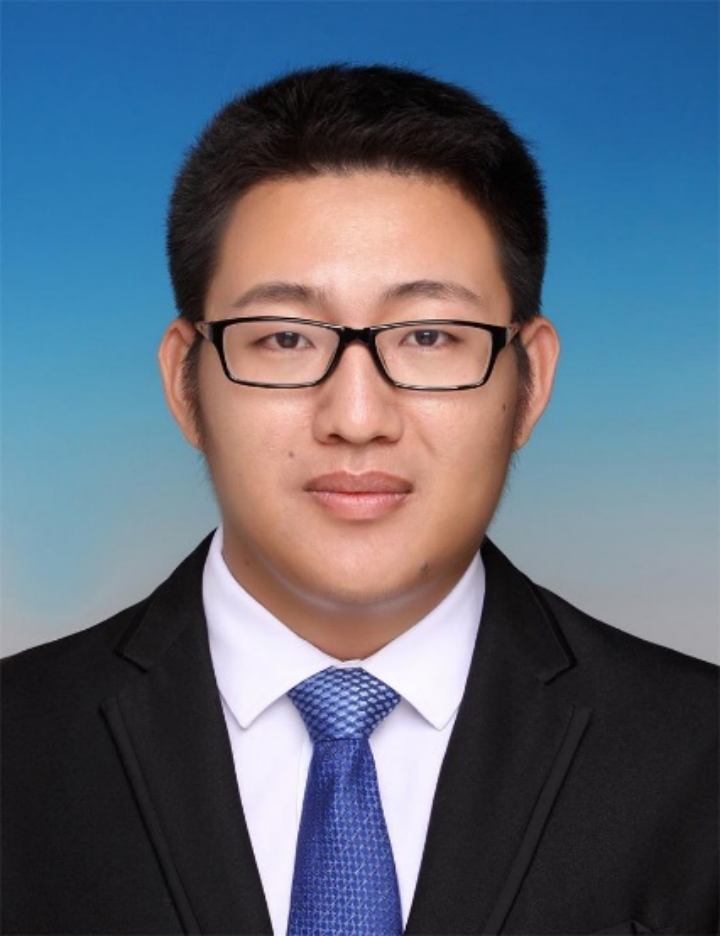

姜洪殿
姜洪殿,管理学博士,12BET/能源与环境政策研究中心副教授、博士生导师。主要研究方向为能源-经济-环境复杂系统建模、气候政策成本收益综合评估。入选2023年度管理科学与工程学会“博士学位论文支撑计划”。主持国家自然科学基金和中央高校基本科研业务费各1项,参与科技部重点研发计划、国家自然科学基金创新研究群体、国家自然科学基金优秀青年科学基金、国家社科基金重点项目等多项国家重要科研任务。担任SSCI期刊《Frontiers in Psychology》和SCI期刊《Frontiers in Environmental Science》客座主编;担任SCI期刊《Petroleum Science》青年编委、《Frontiers in Energy Research》和《Frontiers in Environmental Science》编委。目前,在《自然》子刊《Nature Climate Change》《Energy Economics》《Ecological Economics》《Technological Forecasting and Social Change》《中国管理科学》《中国人口•资源与环境》等能源与环境经济领域高水平期刊发表论文40多篇。
【招生学科】
管理科学与工程、能源与气候经济
欢迎具有管理科学、经济科学、数理科学、信息科学等相关知识背景的同学申请推免或报考研究生。
【联系方式】
地址:北京市海淀区中关村南大街5号12BET(100081)
Email:bitjhd@163.com; jianghongdian@bit.edu.cn
【教育背景】
2017.09-2021.06 12BET 管理科学与工程 管理学博士
2019.09-2020.10 奥地利国际应用系统分析研究所(IIASA) 联合培养博士生
2015.09-2017.06 中国石油大学(北京) 管理科学与工程 管理学硕士
2011.09-2015.06 中国石油大学(华东) 信息管理与信息系统 管理学学士
【工作经历】
2024.07-至今 12BET 12BET 副教授 博导
2023.01-2024.07 中国地质大学(北京) 经济12BET 副教授(破格) 博导
2021.07-2022.12 中国地质大学(北京) 经济12BET 讲师
【代表性论文(*通讯作者;#共同第一作者)】
(1) L.-J. Liu#, H.-D. Jiang#, Q.-M. Liang*, F. Creutzig**, Yi-Ming Wei***, et al., Carbon emissions and economic impact of EU’s embargoing Russian fossil fuels. Nature Climate change. 2023, 13, 290-296. (共同第一, SCI, Q1, 并被遴选为Featured Article)
(2) H.-D. Jiang, B. K. Pradhan, K. Y. Dong*, Y.Y. Yu, Q. M. Liang**. An economy-wide impacts of multiple mitigation pathways toward carbon neutrality in China: A CGE-based analysis. Energy Economics. 2024. 129: 107220. (SSCI, Q1, ABS 3星)
(3) H.-D. Jiang, Q. M. Liang*, Y. F. Yao, L. C. Liu. Incentive policies to realize large-scale deployment of carbon capture and storage in China's power sector and its economy-wide impacts. Structural Change and Economic Dynamics. 2024, 71: 1-14 (SSCI, Q1, ABS 2星)
(4) H.-D. Jiang*, Y.-X. Liu, H.-X. Wang, H.-J. Li, Y.-T. Jiang. An economy-wide and environmental assessment of an imported supply shortage for iron ore: The case of China. Economic Analysis and Policy. 2024, 83: 606-617. (SSCI, Q1)
(5) H.-D. Jiang, K. Y. Dong*, J. Qing, Q. Teng**. The role of technical change in low-carbon transformation and crises in the electricity market: A CGE analysis with R&D investment. Energy Economics. 2023, 125: 106897. (SSCI, Q1, ABS 3星)
(6) Qiang Teng, Y.-F. Zhang, H.-D. Jiang*, Q. M. Liang. Economy-wide assessment of achieving carbon neutrality in China’s power sector: A computable general equilibrium analysis. Renewable Energy. 2023, 219: 119508. (SCI, Q1, 中科院1区Top)
(7) H.-D. Jiang, P. Pallav, Q.-M. Liang*, L.-J. Liu, Y.-F. Zhang. Improving the regional deployment of carbon mitigation efforts by incorporating air-quality co-benefits: A multi-provincial analysis of China. Ecological Economics. 2023, 204: 107675. (SSCI, Q1, ABS 3星, FMS管理科学A类期刊)
(8) H.-D. Jiang, R. Yu, X.-Y. Qian*. Socio-economic and energy–environmental impacts of technological change on China's agricultural development under the carbon neutrality strategy. Petroleum Science. 2023. (SCI, Q1, 中科院1区)
(9) H.-D. Jiang, L.J Liu*, K. Y. Dong, Y.W. Fu. How will sectoral coverage in the carbon trading system affect the total oil consumption in China? A CGE-based analysis, Energy Economics. 2022, 110: 105996. (SSCI, Q1, ABS 3星)
(10) H.-D. Jiang, P. Purohit, Q.-M. Liang*, K. Y. Dong, L.J Liu. The cost-benefit comparisons of China’s and India’s NDCs based on carbon marginal abatement cost curves, Energy Economics. 2022.109: 105946 (SSCI, Q1, ABS 3星)
(11) H.-D. Jiang, M. M. Xue, Q.-M. Liang*, Toshihiko Masui, Z.Y Ren. How demand-side policies that promote electrification and decarburization affect private transport in China: A computable general equilibrium analysis. Technological Forecasting and Social Change. 2022. 175: 121322. (SSCI, Q1, ABS 3星)
(12) H.-D. Jiang, L.J Liu*, H. M. Deng. Co-benefits comparison of carbon tax, sulfur tax and nitrogen tax: A case of China. Sustainable Production and Consumption. 2022.29: 239-248 (SSCI, Q1, 中科院1区Top)
(13) H.-D. Jiang, M. M. Xue, K. Y. Dong, Q.-M. Liang*. How will natural gas market reforms affect carbon marginal abatement costs? Evidence from China, Economic Systems Research. 2022, 34(2): 129-150. (SSCI, Q2, ABS 2星, 国际投入产出协会会刊)
(14) H.-D. Jiang, X. C. Dong, Q.Z. Jiang, K.Y. Dong*. What drives China’s natural gas consumption? Analysis of national and regional estimates. Energy Economics. 2020; 87, 12. (SSCI, Q1, ABS 3星)
(15) H.-D. Jiang, K. Y. Dong, K. Zhang, Q.-M. Liang*. The hotspots, reference routes, and research trends of marginal abatement costs: A systematic review, Journal of Cleaner Production. 2020; 252, 13. (SCI/SSCI, Q1, 中科院1区Top)
(16) H.-D. Jiang, W.T. Hao, Q.Y. Xu, Q.-M. Liang*. Socio-economic and environmental impacts of the iron ore resource tax reform in China: A CGE-based analysis. Resources Policy. 2020, 68, 101775. (SSCI, Q1)
(17) H.-D. Jiang, K. Y. Dong, Q.-M. Liang*. Research on marginal abatement cost: A bibliometric analysis, Energy Procedia, 2019, 158: 4073-4078. (EI)
(18) 姜洪殿, 董康银.能源价格有序放开对我国碳减排成本的影响研究:动态一般均衡分析. 中国管理科学. 1-12[2024-07-08]. https://doi.org/10.16381/j.cnki.issn1003-207x.2022.2554. (CSSCI, 国家自科基金委管理学部认定的A类期刊)
(19) 姜洪殿, 任重远, 梁巧梅*.地缘政治动荡对中国能源环境的全局经济影响及对策. 中国人口·资源与环境. 2023, 33(9): 1-13 (CSSCI, 中国人文社会科学期刊AMI权威期刊)
(20) 姜洪殿, 杨倩如, 董康银.中国电力行业低碳转型政策的经济-能源-环境影响[J]. 中国人口•资源与环境. 2022; 32(6): 30-40. (CSSCI, 中国人文社会科学期刊AMI权威期刊)
(21) 姜洪殿,董康银,孙仁金等.我国天然气分布式能源发展对策研究.现代化工, 2019,39(05):14-18. (CSCD)
(22) 姜洪殿,董康银,牛亚群,朱祎,孙仁金.基于主成分分析法的中国城市燃气利用综合评价.油气储运, 2018, 37(02):127-134. (中文核心)
(23) 姜洪殿,董康银,杨立雷,刘鹏鸽,孙仁金.我国炼油工业能源效率提升对策研究.现代化工, 2017, 37(04):11-15. (CSCD)
(24) 姜洪殿,董康银,吴金,孙仁金.炼油企业环境成本核算模型与应用.科技管理研究, 2016, 36(16):256-261. (CSSCI)
(25) 姜洪殿,董康银,孙仁金.中国新能源消费预测及对策研究.可再生能源, 2016,34(08):1196-1202. (CSCD)
【主持或参与科研项目】
(1) 国家自然科学基金青年项目:引入气候损失及协同效益的区域减排路径跨期动态研究,2023-2025(主持)
(2) 中央高校基本科研业务费:碳减排成本影响因素建模及其应用研究,2022-2024(主持)
(3) 国家社科基金重点项目:碳中和实施路径及其技术需求与政策研究,2022-2024(青年骨干)
(4) 国家自然科学基金面上项目:协同减排视角下的中国区域低碳发展战略及合作减排机制研究,2021-2024 (青年骨干)
(5) 科技部重点研发计划项目:气候变化经济影响综合评估模式研究,2016-2021.(参与)
(6) 国家自然科学基金创新研究群体项目:能源经济与气候政策研究,2015-2021.(参与)
(7) 国家自然科学基金优秀青年科学基金项目:能源经济复杂系统建模与能源环境政策研究,2015-2017.(参与)
【学术获奖】
2023年,管理科学与工程学会,入选2023年度“博士学位论文支撑计划”
2021年,12BET,优秀博士学位论文育苗基金
2020年,国家教育部,博士研究生国家奖学金 (Top 1%)
2019年,国家留学基金委,国家建设高水平大学公派研究生奖学金